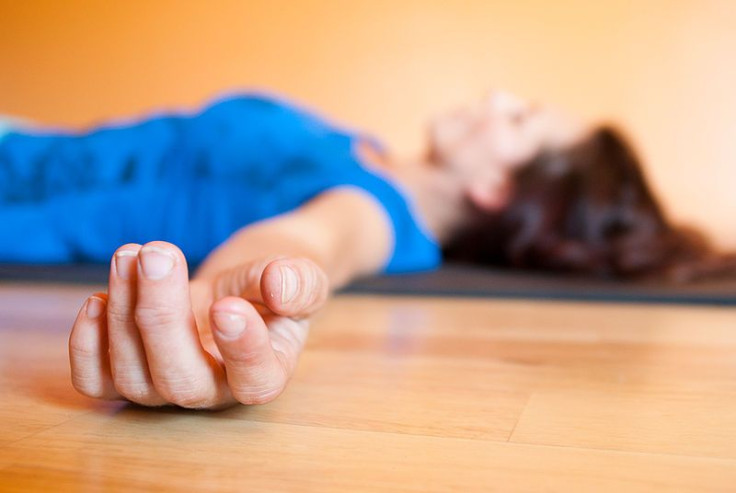Mind-Body Exercises May Ease Symptoms of PTSD

Post-traumatic stress disorder (PTSD) causes a person to experience flashbacks, anxiety, frightening thoughts, and many more feelings of fear caused by a traumatic event. But a new study has found that meditation, stretching, and other forms of mind-body exercises can help normalize the stress hormone levels associated with the disorder.
Researchers from the University of New Mexico and the National Institutes of Health found that patients suffering from PTSD who participated in mind-body exercises were able to increase cortisol levels in their body — a hormone that regulates the body's response to stress. Although cortisol levels rise in response to pressure, increasing levels have also been found to benefit PTSD patients, according to a press release.
"Mind-body exercise offers a low-cost approach that could be used as a complement to traditional psychotherapy or drug treatments," Sang H. Kim of the National Institutes of Health, and lead author of the study, said in the release. "These self-directed practices give PTSD patients control over their own treatment and have few side effects."
To see the impact of mind-body exercises, the researchers examined 28 nurses from the University of New Mexico Hospital — 22 of them reported experiencing PTSD symptoms. The nurses were split into two groups. Twice a week for eight weeks, one group participated in 60-minute "mindfulness" sessions, which included stretching, balancing, and deep breathing, while focusing on awareness of their body's movements, sensations, and surroundings. The control group didn't participate in any meditation.
The participants, who were mostly female, underwent blood tests to measure stress hormone levels and completed checklists that tested for PTSD symptoms. The mindfulness group had a 67 percent increase of cortisol levels in the blood and their PTSD checklist scores decreased by 41 percent, signifying that their PTSD symptoms were diminishing. The numbers were much lower than those who were in the control group — their cortisol levels only increased by 17 percent while their checklist scores decreased by 4 percent.
"Participants in the mind-body intervention reported that not only did the mind-body exercises reduce the impact on their daily lives, but they also slept better, felt calmer, and were motivated to resume hobbies and other enjoyable activities they had dropped," Kim said.
PTSD affects 3.5 percent of the US population each year. Of these cases, 36.6 percent are classified as severe, according to the National Institutes of Health.
Although PTSD is most commonly associated with veterans of war, nurses are frequently exposed to stressors, such as mortality and morbidity. They are commonly exposed to victims of traumatic events and deaths, according to Advance for Nursing, which reported that up to 14 percent of the overall nursing population experiences symptoms for PTSD — four times higher than the general adult population.
Mind-Body Exercises are already being practiced in the military. The Pentagon holds at least seven yoga classes a week for military personnel, according to CBS News.
Twenty percent of the 1.7 million soldiers who served in Afghanistan or Iraq are diagnosed with PTSD, and a previous report found that the "fear circuitry" in their brains is always on high alert, even when their brains are resting.
"In 2009 and 10, I was deployed to Afghanistan for 13 months and the yoga mat was really the only thing that kind of kept me together through some very stressful times," Lieutenant Colonel Melinda Morgan told CBS News.
The findings of this study will appear in the July issue of The Endocrine Society's Journal of Clinical Endocrinology & Metabolism.
Sources:
Kim S, Schneider, Kravitz L, et al. PTSD Symptom Reduction with Mindfulness-Based Stretching and Deep Breathing Exercise: Randomized Controlled Clinical Trial and Efficacy. The Journal of Clinical Endocrinology & Metabolism. July 2013.
Yan X, Brown A, Marmar C, et al. Spontaneous brain activity in combat related PTSD. Neuroscience Letters. May 2013.



























